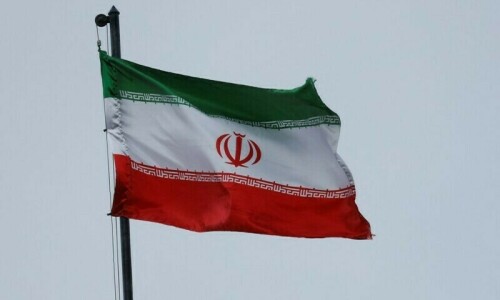CJP Ahmed takes suo motu notice of measures taken to battle coronavirus

Chief Justice of Pakistan Gulzar Ahmed on Friday took a suo motu notice of the government's efforts to curb the spread of coronavirus in the country.
A five-member bench headed by the chief justice and comprising Justice Umar Ata Bandial, Justice Mazhar Alam Khan Miankhel, Justice Sajjad Ali Shah and Justice Qazi Muhammad Amin Ahmed held the first hearing of the case today. The next hearing will be held on April 13.
This is the first suo motu notice taken by Justice Ahmed as the country's top judge.
The court issued notices to the attorney general and additional attorney general of Pakistan as well as AGs of all four provinces and Gilgit Baltistan. Secretaries of interior and health have also been served with notices along with chief secretaries of all four provinces as well as GB.
Earlier this week, the chief justice had bemoaned the government’s decision to shut down health facilities for people suffering from ailments other than Covid-19 by closing out-patient departments (OPDs) in all hospitals across the country in view of the coronavirus pandemic.
He made the above observations during the hearing of a petition challenging the exercise of suo motu powers by the Islamabad High Court (IHC) through its March 20 order to grant bail to under-trial prisoners (UTPs) in view of the Covid-19 outbreak.
The chief justice had also criticised the government's response to the health crisis, saying that "nothing was being done on the ground".
Justice Ahmed raised objections over government's decision to impose a lockdown, provinces' demands for funds to buy gloves, sanitisers and other medical supplies, lack of testing kits and grim media coverage of the situation.
"People will die after hearing such frightening remarks,” he had said.
Following the chief justice's criticism, governments of Sindh, Punjab and Khyber Pakhtunkhwa announced that OPDs were being reopened.
Measures taken so far
So far, 4,688 cases of Covid-19 have emerged in Pakistan, most of which have been detected in Punjab.
In view of increasing cases, the provincial governments first closed educational institutions and banned all gatherings, including weddings and then proceeded to impose lockdowns in order to curb the spread of the disease. Prayer congregations were limited as well.
The Centre, after coordinating with all provinces and federal territories, allocated Rs144 billion to the Ehsaas Emergency Cash Programme under which Rs12,000 will be provided to 12 million families each. The programme was initiated to provide relief to lower-income people, especially daily-wage workers who have lost work due to the ongoing lockdown. Sindh and Punjab pledged to contribute funding for the assistance of additional 700,000 and 250,000 persons, respectively.
The federal government has also recruited volunteers for its Corona Tigers Relief Force, which would help the government in its relief efforts.
Meanwhile, the National Disaster Management Authority is making efforts to procure medical equipment including ventilators, personal protective equipment for medical professionals as well as masks, gloves and additional testing kits from other countries, including China.
















































